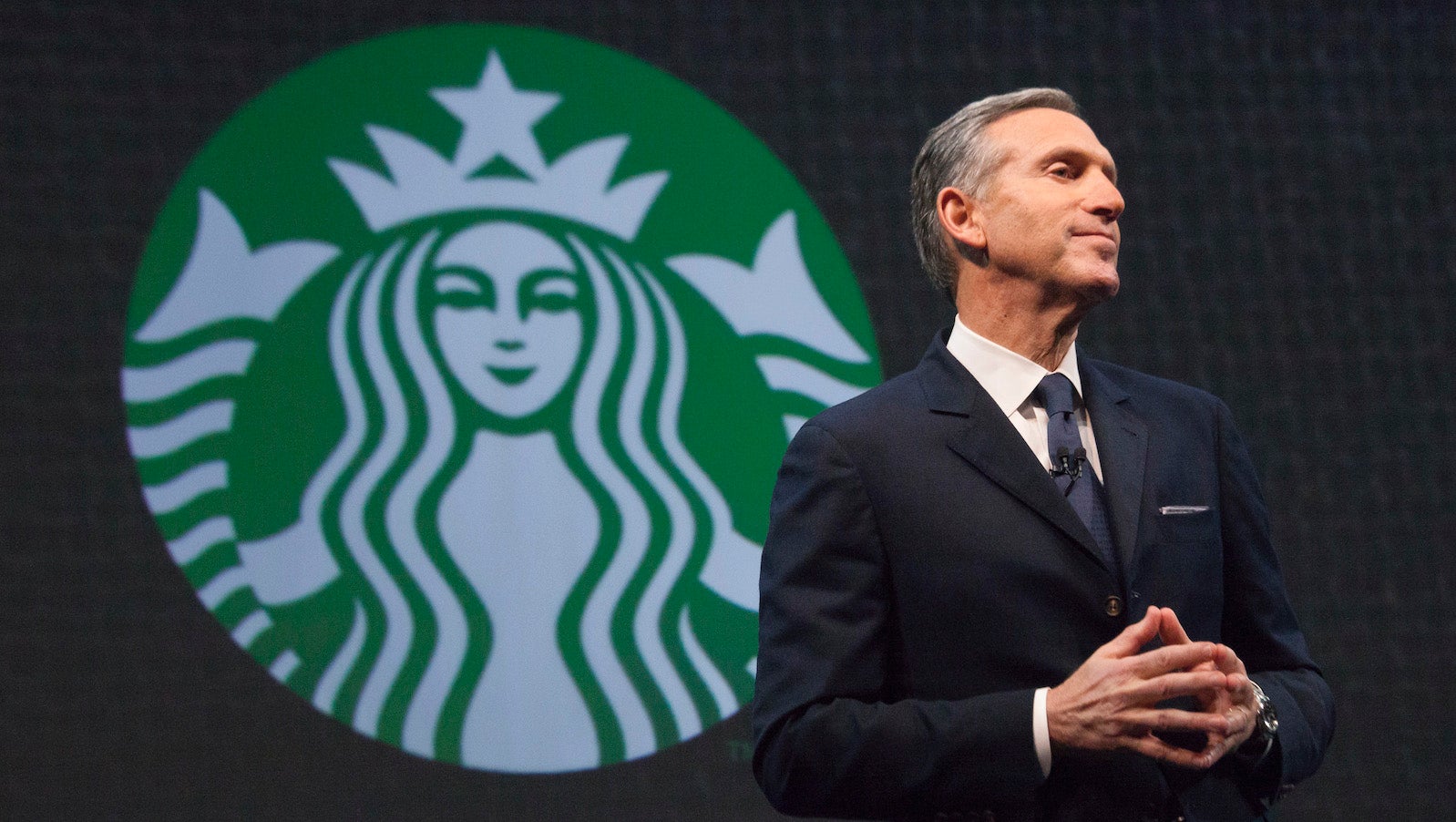How many times can Howard Schultz be Starbucks’ CEO?
Howard Schultz just can’t quit Starbucks—at least, not for long.


Howard Schultz just can’t quit Starbucks—at least, not for long.
The global coffee chain announced today that Schultz will assume the role of interim chief executive and return to the company’s board when current head Kevin Johnson steps down on April 4. That will mark Schultz’s third turn as Starbucks CEO, having most recently led the company from 2008 to 2017, after overseeing its sweeping expansion from 1987 to 2000.
Why Howard Schultz is replacing Kevin Johnson at Starbucks
The news that Johnson is leaving Starbucks after five years at its helm came as a surprise to outsiders, though Johnson said in a statement that he had informed the company’s board about a year ago that he was “considering retirement” as the pandemic eased.
Less surprising is that the coffee titan would tap Schultz during a turbulent period. When Schultz made his first Starbucks comeback in 2008, he rejoined the company as it struggled with the consequences of the Great Recession in addition to strategic errors such as using pre-ground beans and underestimating competitors like Dunkin’ Donuts. Back under Schultz, the company regained its financial footing.
Howard Schultz’s history with Starbucks unions
Starbucks’ recent earnings reports have been fairly strong despite the continued impact of the pandemic. In the last quarter of 2021, it brought in a profit of $816 million, up 31% year-over-year.
But the company still faces challenges including supply-chain issues and inflation. And its leadership has been under heightened public scrutiny amid recent unionization efforts at more than 130 Starbucks stores in the US.
This week, a group of 75 investors led by Trillium Asset Management urged Starbucks to adopt a “global policy of neutrality” toward workers’ organizing efforts, citing concerns over the company’s alleged union-busting. The National Labor Relations Board also issued a complaint against Starbucks earlier this week, saying it had illegally retaliated against two Arizona employees who supported a union at their store in Phoenix. Starbucks denies that it has penalized workers for organizing.
Schultz has previously come out against unions at Starbucks, writing in a letter to retail employees last year that he was “saddened and concerned” that they might feel union representatives were necessary. He also gave a talk last year to employees in the Buffalo, New York, area in advance of union votes at their stores. He did not explicitly mention unions, but acknowledged that the company had made mistakes. “We learn from them, and we try and fix them,” he said.